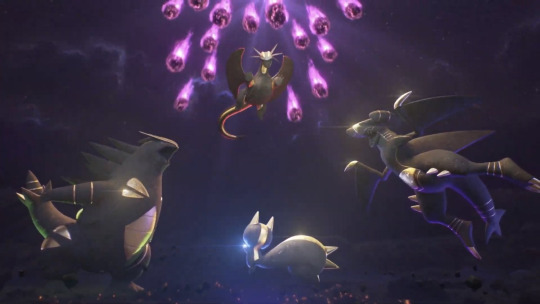Text
in conversation about white people who go to Japan and expect their knowledge of anime to culturally carry them, I was once posed with “it’s like if there was a Japanese guy who was obsessed with spongebob and came over here and thought he could get by just communicating in spongebob quotes.” This is a false equivalence because if such a man existed we would crown him king. We’d love him. Americans would fucking love that. sometimes I get sad that this isn’t a real guy I can invite to a party.
138K notes
·
View notes
Text
anyways I think it’s based that toby fox nade a game that sold a million copies and became massively culturally iconic and got in smash and was both given as a gift to and had its final boss theme played in a performance for the pope, but his wikipedia article has no “early life” section, the “personal life” section is three sentences long, and there isn’t even a picture of him. for the 3 years between the release of undertale and deltarune chapter 1 there was talk of deleting his article because they couldn’t find any information for it that wasn’t already on the one for undertale. king of privacy.
59K notes
·
View notes
Photo




finally managed to shoot down the corpse and was not expecting the enthusiasm
5K notes
·
View notes
Text
it is truly astounding how unembarrassed people are to have less basic curiosity about the world than a rural peasant from the 1400s
56K notes
·
View notes
Text
imagine playing pokemon so good in 2014 that now your rat is the poster child for the pokemon vgc scene forever

32K notes
·
View notes
Text

We can change this horrible construct.
#MedicareForAll
43K notes
·
View notes
Text
One of the worst flaws of d20-era (a.k.a. post-3e) D&D is that despite its attempts to codify mechanics for SO MUCH shit that would just be adjudicated on the fly by the GM in previous editions, they lack codified mechanics for enemy morale and I think that’s a big reason why combat encounters tend to become so drawn-out and tedious.
Like, my first edition was 3.5e and I remember the Dungeon Mater’s book had this little section about how most creatures probably wouldn’t fight to the death unless they’re like mindless undead, but it lacked any sort of advice on WHEN it might be appropriate to make creatures surrender, flee, negotiate, etc. I think 5e has a weaksauce attempt at a morale roll using a wisdom saving throw, but it’s presented as an optional rule and most people ignore those. (Also like. Even when people do decide to use it. Using a wisdom saving throw means that creatures with higher wisdom are more likely to stay and fight to the death, which is just stupid)
All pre-3e editions (OD&D, B/X, BECMI, AD&D, etc) had this really simple but cool morale system that’s still used by A LOT of OSR games, where every creature’s stat block had a morale value between 2 and 12, measuring their courage and loyalty. In combat, the GM would test morale for every enemy:
The first time they see a creature on their side die
When 50% of their group has been defeated
(This isn’t in the original D&D morale rules but a lot of OSR games add it too) When their leader is defeated.
The GM would roll 2d6 for every enemy, and if the result was greater than their morale, they’d attempt to flee or surrender. It’s simple, it’s elegant, it takes the guesswork out of when it’s appropriate for monsters to flee, and it provides an easy way to characterize certain enemies as more or less likely to stay and fight to the death.
8K notes
·
View notes
Text
as a player you should really internalize the intent/task sentence structure. “i wanna open this door by prying it open with a crowbar,” “i wanna set fire to the hay bale with my firebolt,” “i wanna haggle this price by commenting on some minor scratches.”
very often i see players only stating one of these. either “i wanna open the door” or “i cast firebolt on the hay bale.”
what the intent/task structure does is properly communicate to your GM what a success/failure state looks like, and what kind of challenge they propose. sometimes players have a very specific outcome in mind, but when they just state the task, even a successful attempt will be disappointing because the GM does not know what you want to achieve. and vice versa, just stating your intent puts weight on the GM to not only come up with the consequences to the actions, but what even causes them to begin with.
21K notes
·
View notes












